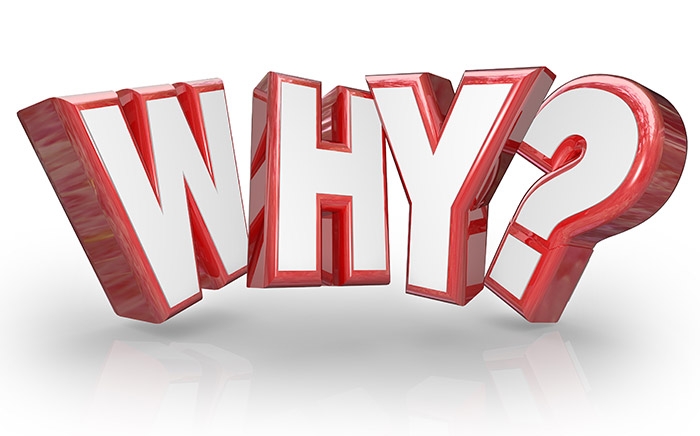Why Politics Matters: Shaping Society, Securing Rights, and Driving Progress
Introduction: The Essential Role of Politics in Society
Politics permeates every facet of modern life. It is the process by which groups make decisions, resolve conflicts, and distribute resources. Whether you are aware of it or not, the rules that govern our communities, the rights we enjoy, and the opportunities available to us are all shaped by political systems. Understanding why we need politics-and how to engage with it-empowers individuals and communities to safeguard their interests and promote collective well-being. [4]
What Is Politics?
Politics encompasses activities, institutions, and processes related to governance, power relations, and decision-making within groups. It is not limited to government alone: politics occurs in workplaces, organizations, families, and even international institutions. Political systems provide frameworks for resolving disputes, making laws, and ensuring orderly coexistence. [4]
Key Functions of Politics
- Decision-making: Politics enables societies to choose leaders, pass laws, and address collective challenges.
- Negotiation and Compromise: Political processes help groups with differing views find common ground and seek peaceful solutions.
- Distribution of Resources: Politics determines how resources-such as funding, education, and healthcare-are allocated.
Why Do We Need Politics?
Politics is essential for several reasons, each impacting the quality and direction of our lives. The necessity of politics arises from the need to organize society, protect rights, and foster development. [1]
1. Organizing Society
Without politics, societies would lack the structure required for coordinated action. Political institutions-such as legislatures, courts, and local councils-establish laws and processes that guide social behavior. This organization is crucial in maintaining order, reducing conflict, and enabling large-scale cooperation. [4]
Example:
Consider public health: decisions about vaccination programs, sanitation, and emergency response are made through political processes. These decisions impact everyone, demonstrating why organized governance matters.
2. Protecting Rights and Freedoms
Political systems define and protect individual rights. Constitutions, bills of rights, and laws all arise from political deliberation. In democratic societies, citizens have a voice in shaping these protections. [2]
Example:
Freedom of speech, religious liberty, and equal protection under the law are all safeguarded by political frameworks. When injustices occur, politics provides avenues for redress and reform.
3. Advancing the Common Good
Politics enables communities to pursue collective goals, such as improving education, reducing poverty, and protecting the environment. While views on the common good may differ, political engagement allows for debate, negotiation, and compromise. [2]
Example:
Policies to address climate change or expand healthcare access often result from political activism and public debate. Progress in these areas depends on robust political participation.
4. Managing Conflict and Change
Politics provides non-violent mechanisms for resolving disputes and adjusting to social changes. Elections, legislative debates, and judicial review all offer peaceful pathways for addressing disagreements. [4]

Source: ehsdailyadvisor.blr.com
Example:
Changes in marriage laws, voting rights, and civil liberties have all been achieved through established political processes, rather than through unrest or violence.
5. Empowering Citizen Participation
Political systems encourage citizens to take part in decision-making. By voting, joining parties, or advocating for causes, individuals help shape the direction of their communities. [3]
Example:
Grassroots campaigns and community organizing can influence local and national policies, demonstrating the power of collective action.
How to Engage with Politics: Practical Steps
Political participation is accessible through multiple avenues. Here are actionable steps for individuals who wish to make a difference:
- Register to Vote: Voting is a primary way to influence government decisions. To register, visit your state’s official election website (search for “[your state] voter registration” on your state’s .gov site).
- Join Civic Organizations: Organizations such as the League of Women Voters, NAACP, or local advocacy groups offer resources and opportunities for involvement. Find official websites by searching their names.
- Attend Public Meetings: Town halls, city council meetings, and school board sessions allow you to voice concerns and learn about policies impacting your area. Check your local government’s official site for schedules.
- Contact Elected Officials: You can reach out to representatives via their verified government websites. Most offer contact forms and phone numbers for constituent services.
- Educate Yourself: Reliable information is essential. Use established news sources such as The New York Times or BBC News for current events, and review policy explanations on official sites like Congress.gov .
- Participate in Peaceful Advocacy: Attend rallies, sign petitions, or volunteer for causes. Many organizations list upcoming events and opportunities on their official web pages.
Challenges and Solutions in Political Engagement
While politics is crucial, engaging effectively can be challenging. Common obstacles include misinformation, polarization, and apathy.

Source: emergingrnleader.com
Challenge: Misinformation
Unreliable sources and social media can spread falsehoods. To address this, verify information through multiple reputable outlets and official government portals.
Challenge: Political Polarization
Sharp divisions can hinder constructive dialogue. Practicing civil discourse and seeking common ground helps reduce tension and encourages collaborative solutions. [2]
Challenge: Apathy and Disengagement
Many people feel powerless or uninformed. Overcoming this requires education, outreach, and making participation accessible. Community organizations can provide support and resources.
Alternative Approaches to Political Involvement
If traditional political participation feels inaccessible, consider alternative methods:
- Online Activism: Use verified platforms like Change.org for petitions and campaigns.
- Community Volunteering: Local service projects often intersect with policy issues; search for opportunities via your city’s official web portal.
- Issue-Based Advocacy: Focus on single issues that matter most to you, joining specialized advocacy organizations (search for official names and verify URLs).
Key Takeaways
Politics is the backbone of organized society. It is necessary for making decisions, protecting rights, and driving progress. By participating in politics-whether through voting, advocacy, or public service-individuals help shape a more just and effective community. If you are unsure how to begin, start by visiting official government websites, joining recognized organizations, and seeking information from credible sources.
References
- [1] Lex Humana (2023). The Role of Politics in the Life of Modern Society.
- [2] Baylor Magazine (2024). The Purpose of Politics.
- [3] University of Minnesota (2004). Why Do People Participate in Politics?
- [4] Wikipedia (2024). Politics.
- [5] Grantham University Blog (2015). 3 Reasons You Should Care About Politics and Government.



